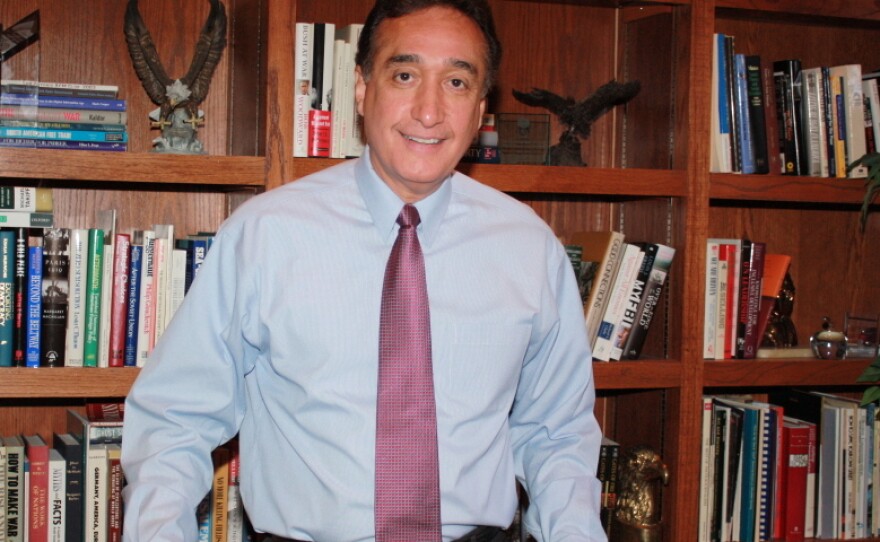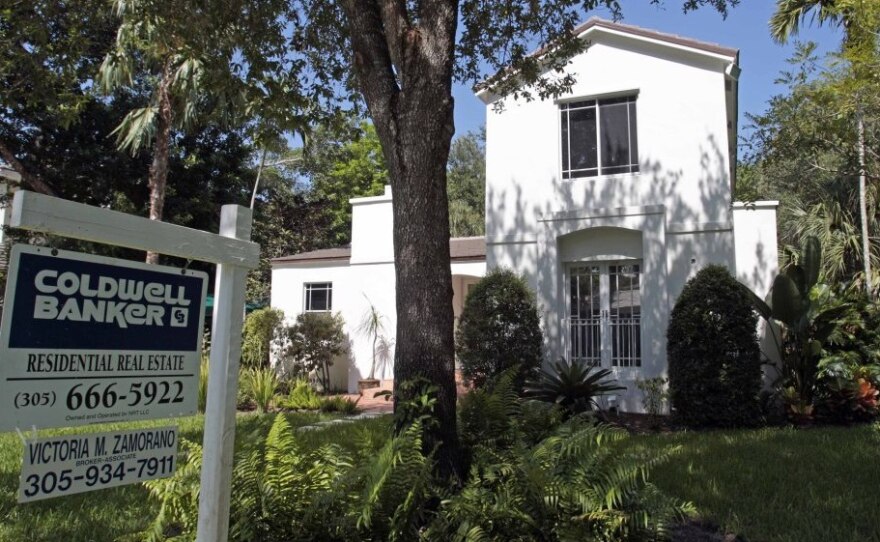Say you own a house in Gainesville, Fla., or St. Paul, Minn. It cost you $172,000 — that's the median sales price of a single family home in the United States. You put 20 percent down when you bought the house, and you're able to make your monthly payments — but just barely. This property is your little slice of the American dream.
Now what if someone tells you the plan is to raise your interest rate, cut your house value and eliminate the tax deduction you get for mortgage interest?
That's what some economists and policymakers are saying should happen. Viral Acharya is one of them.
He's a finance professor at New York University and co-author of the book Guaranteed to Fail.
"Our long-term proposal is to reduce the extent of home ownership subsidies that we are providing, so wind down Fannie Mae and Freddie Mac in the long run, and second, remove the tax deductibility of mortgage interest rates so we are not distorting the system to over-borrow on houses," Acharya tells Laura Sullivan, guest host of weekends on All Things Considered.
Acharya and his co-writers acknowledge that the transition to such a system could be rough — he suggests a one-time payment to homeowners who are underwater to give them a "soft landing."
The professor realizes his proposal will be unpopular, but he says people have to understand that significant tax deductions and subsidies have fueled an unsustainable housing bubble.
"It's not just you who got the lower interest rate. Everyone else around you got the lower interest rate. So they all want to consume more housing. The property prices therefore went up, so the amount of property you wanted to buy actually cost you more than it should have."
Removing government housing subsidies will correct the market, he says, and might not even mean fewer Americans will own homes.
"If you look across say, the 25 largest countries of the world, the United States in terms of its home ownership rate sits right at the center," he notes, "which seems to suggest the whole slew of subsidies that we have for housing in the United States is neither sufficient nor necessary to produce high ownership rates."
The Middle Class Argument
But Henry Cisneros, who was Bill Clinton's Housing and Urban Development secretary, says getting rid of housing subsidies would be a disaster.

"The mortgage tax deduction is so embedded in our economic system, our housing finance system, that I think it would be a major disruption to eliminate it," he says.
Cisneros argues that housing subsidies help build the middle class.
"One of the principle ingredients for sustaining the American middle class is the enforced savings and the equity in their home. It is their net worth."
Cisneros does believe subsidies should change. He says they can be made more progressive by limiting tax breaks on second homes and vacation homes for people with higher incomes.
But even with modifications, Cisneros sees housing subsidies as a necessity.
"It's very close to Social Security as one of those 'third-rail' issues," he says.
Copyright 2022 NPR. To see more, visit https://www.npr.org. 9(MDAzMjM2NDYzMDEyMzc1Njk5NjAxNzY3OQ001))






